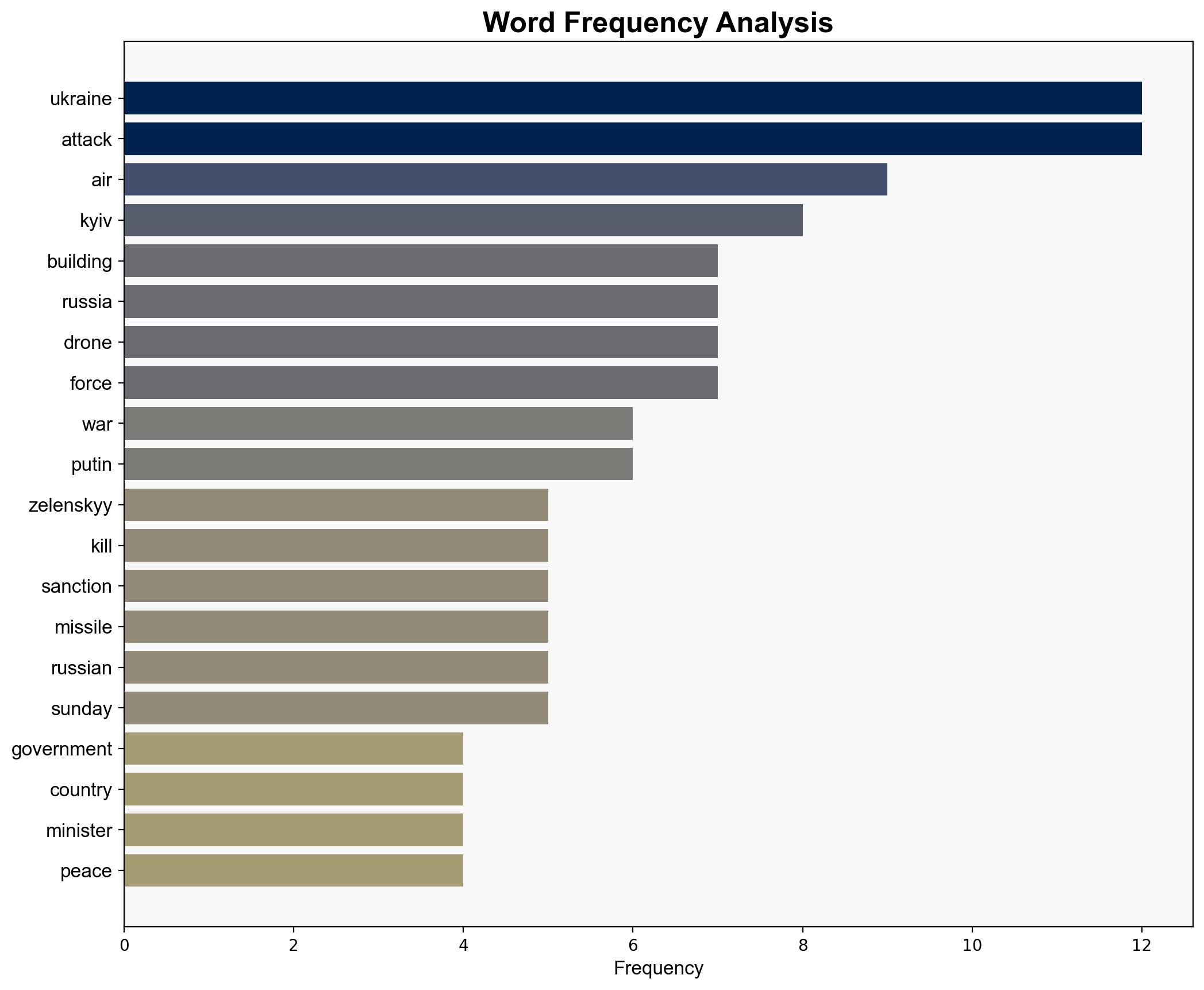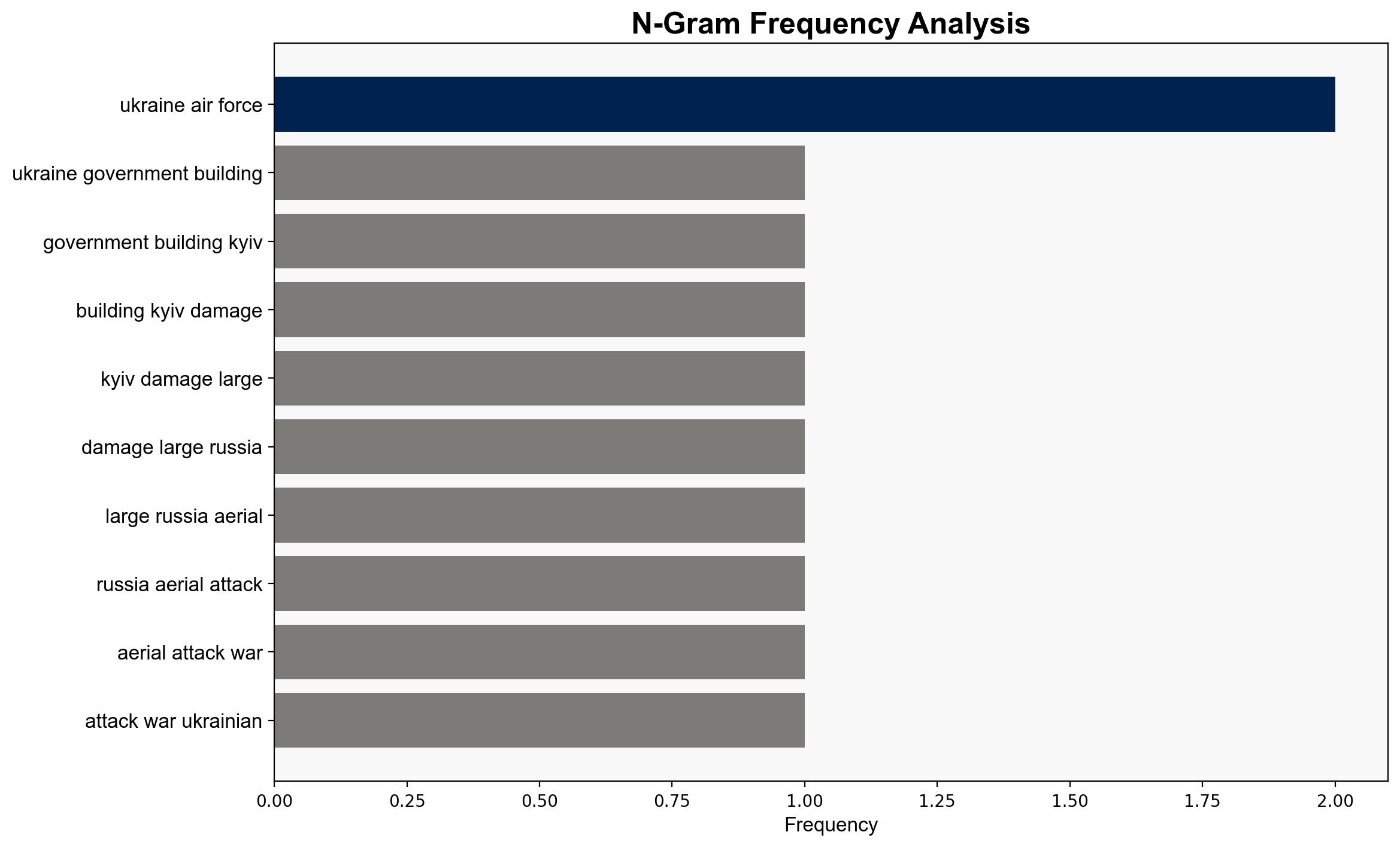Ukraine government building damaged in large Russia aerial attack – CBS News
Published on: 2025-09-07
Intelligence Report: Ukraine government building damaged in large Russia aerial attack – CBS News
1. BLUF (Bottom Line Up Front)
The most supported hypothesis is that the aerial attack on the Ukrainian government building in Kyiv is a deliberate escalation by Russia to undermine Ukrainian governance and morale. Confidence level: Moderate. Recommended action: Strengthen international sanctions against Russia and enhance Ukraine’s air defense capabilities.
2. Competing Hypotheses
1. **Deliberate Escalation Hypothesis**: The attack is a calculated move by Russia to destabilize Ukraine’s government and signal its capability and willingness to target critical infrastructure, thus prolonging the conflict.
2. **Miscommunication or Error Hypothesis**: The attack was not a deliberate targeting of a government building but rather a miscommunication or error in targeting, possibly due to faulty intelligence or technical failures.
3. Key Assumptions and Red Flags
– **Assumptions**: The deliberate escalation hypothesis assumes Russia has strategic intent to destabilize Ukraine and that the attack was precisely targeted. The miscommunication hypothesis assumes potential technical or intelligence failures.
– **Red Flags**: Lack of clear evidence differentiating between deliberate targeting and accidental damage. Inconsistent reports on the nature of the attack (e.g., drone vs. missile).
– **Blind Spots**: Potential undisclosed diplomatic communications or covert operations influencing the attack’s intent.
4. Implications and Strategic Risks
– **Escalation Risks**: Increased military engagement and potential for broader regional conflict if Ukraine or its allies respond militarily.
– **Economic Impact**: Heightened sanctions could further strain global energy markets, particularly affecting European energy security.
– **Geopolitical Dynamics**: Potential for increased NATO involvement and further polarization between Western allies and Russia.
– **Psychological Impact**: Erosion of public confidence in government safety and stability within Ukraine.
5. Recommendations and Outlook
- Enhance Ukraine’s air defense systems with international support to mitigate future aerial threats.
- Strengthen and coordinate international sanctions targeting Russian energy exports to increase economic pressure.
- Scenario Projections:
- Best Case: Diplomatic negotiations lead to de-escalation and a ceasefire agreement.
- Worst Case: Continued Russian aggression leads to broader conflict involving NATO forces.
- Most Likely: Ongoing skirmishes with intermittent diplomatic efforts, maintaining a protracted conflict.
6. Key Individuals and Entities
– Volodymyr Zelenskyy
– Yuriy Ihnat
– Tymur Tkachenko
– Vitalii Klitschko
– Keir Starmer
– Vladimir Putin
– Kevin Hassett
7. Thematic Tags
national security threats, geopolitical tensions, military strategy, international sanctions





